The importance of community-based health research cannot be overstated. It not only informs care that is relevant to the needs of patients, but engages with the way in which those approaching healthcare services want to be treated and understood.
For 27 years, the Khayelitsha Cervical Cancer Screening Project (KCCSP) has conducted research in Khayelitsha, Cape Town, screening around 60,000 women for cervical cancer in a variety of high-level projects and studies.
“We are a research entity that provides services as well… our work is generalisable. We get the evidence and then it can be used elsewhere,” explained Lynette Denny, director of KCCSP and professor at the University of Cape Town (UCT) department of obstetrics and gynaecology.
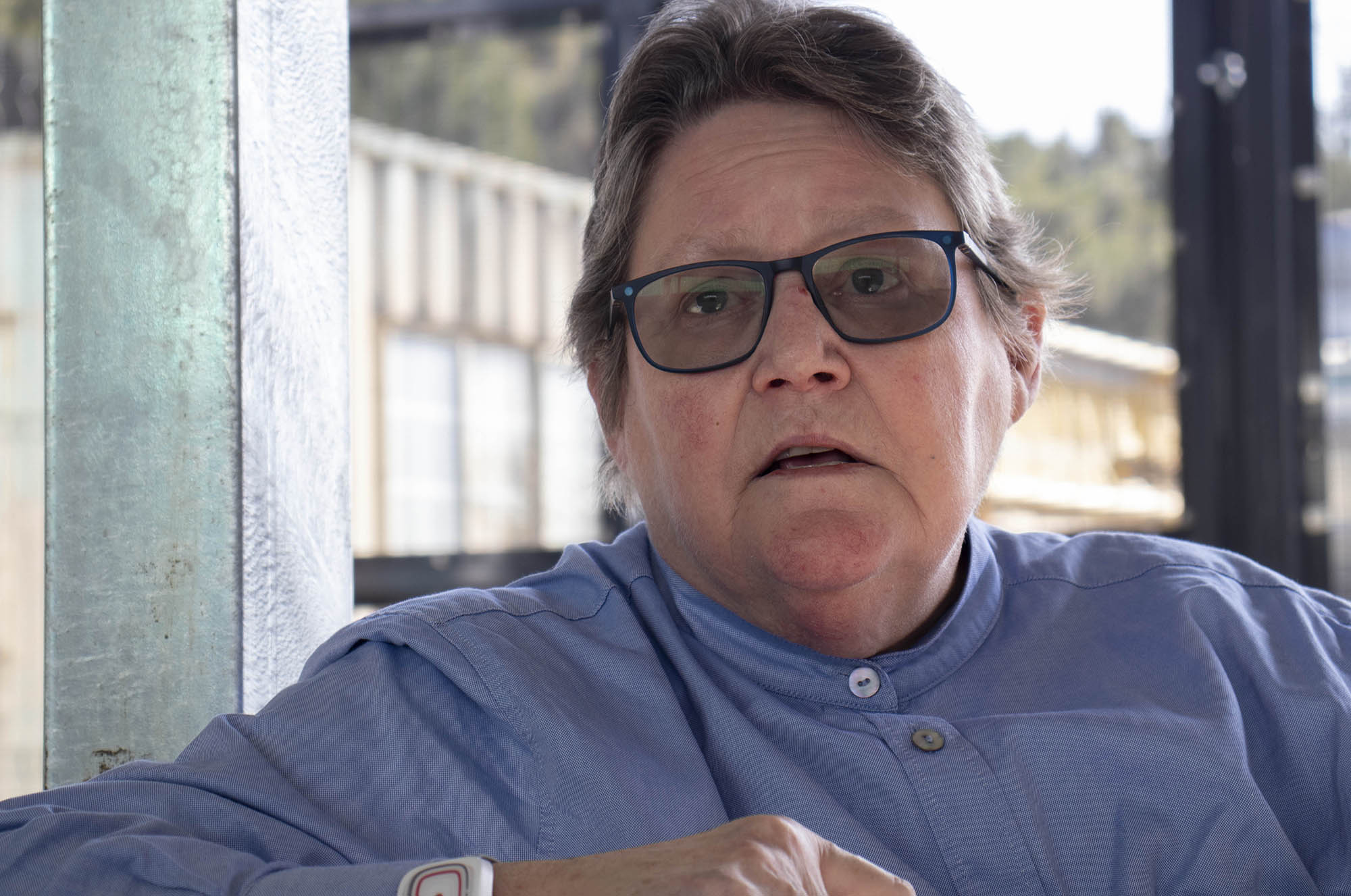 ‘When you invest in preventing cervical cancer, you reduce premature deaths among women,’ says Prof Lynette Denny, director of the Khayelitsha Cervical Cancer Screening Project. Key members of society — breadwinners, household heads, role models — are therefore less likely to be lost. (Photo: Leila Dougan)
‘When you invest in preventing cervical cancer, you reduce premature deaths among women,’ says Prof Lynette Denny, director of the Khayelitsha Cervical Cancer Screening Project. Key members of society — breadwinners, household heads, role models — are therefore less likely to be lost. (Photo: Leila Dougan)
“Our main objective is to continue to unpack the issues around screening and treating at the same visit, on site — its implications for women, and ultimately, its ability to actually prevent or reduce cervical cancer.”
Read more in Daily Maverick: “World expert on cervical cancer Prof Lynette Denny reflects on an extraordinary life of service”
Empowerment and access
The KCCSP marked its most recent milestone on 8 August with an event celebrating the opening of its newly renovated facilities. The funds to upgrade the site, located alongside the Site B Khayelitsha Community Health Centre, come from two grants awarded to the project by the National Institutes of Health, said Denny. The money is managed by UCT.
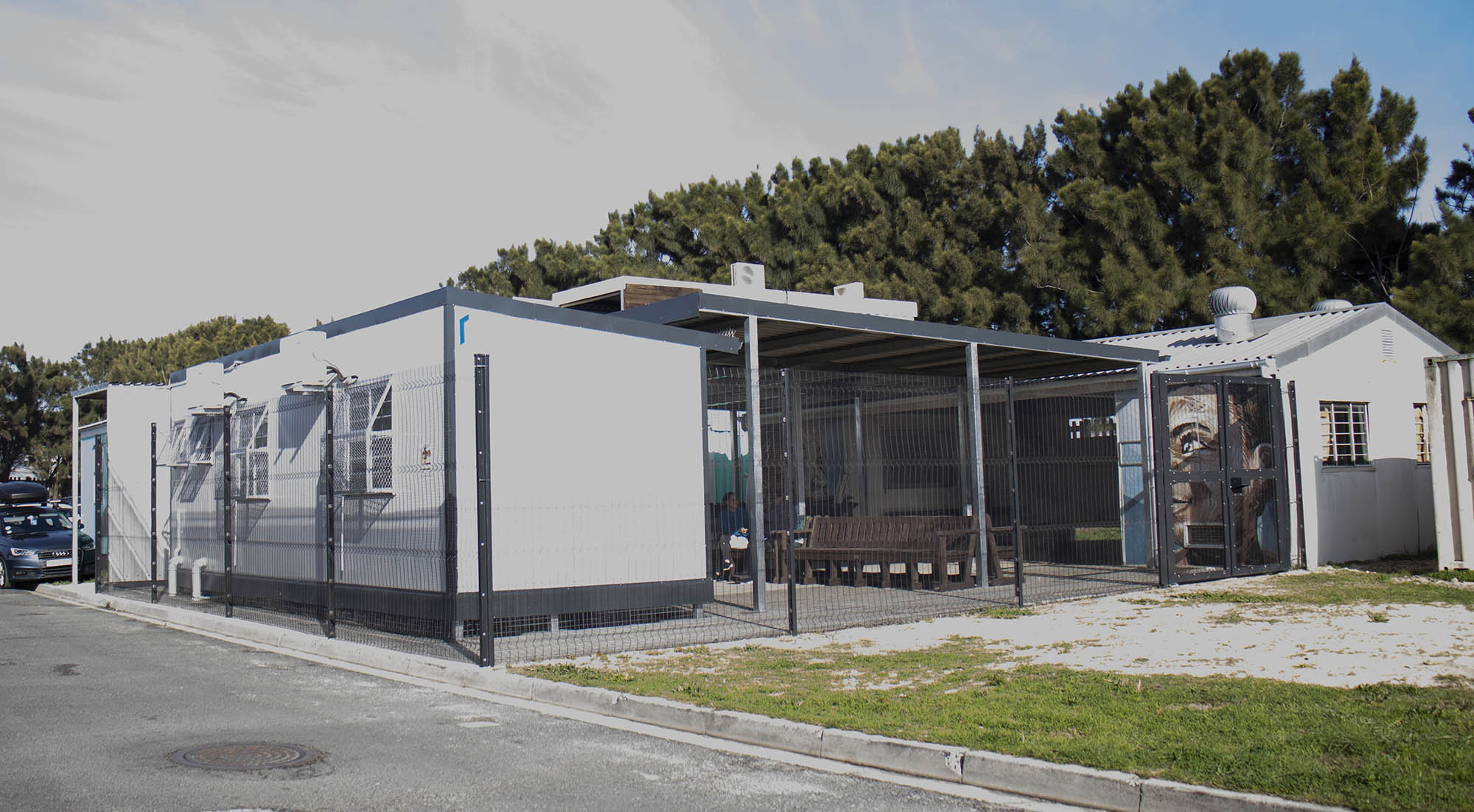 The newly renovated Khayelitsha Cervical Cancer Screening Project was opened by the University of Cape Town on Monday, 8 August. Over the years, the centre’s team has screened close to 60,000 women for cervical cancer. (Photo: Leila Dougan)
The newly renovated Khayelitsha Cervical Cancer Screening Project was opened by the University of Cape Town on Monday, 8 August. Over the years, the centre’s team has screened close to 60,000 women for cervical cancer. (Photo: Leila Dougan)
Speaking at the opening, head of the Western Cape Health Department, Dr Keith Cloete, said the Khayelitsha-based project shows that research and evidence can influence the way in which the healthcare system changes over time.
“When you have an intervention which is aimed at the most vulnerable and probably the most important… stakeholders in societal reform, which are women, it’s very powerful,” he said. “It’s not just research and implementation, but it’s also empowering women and addressing the situation of women in our societies.”
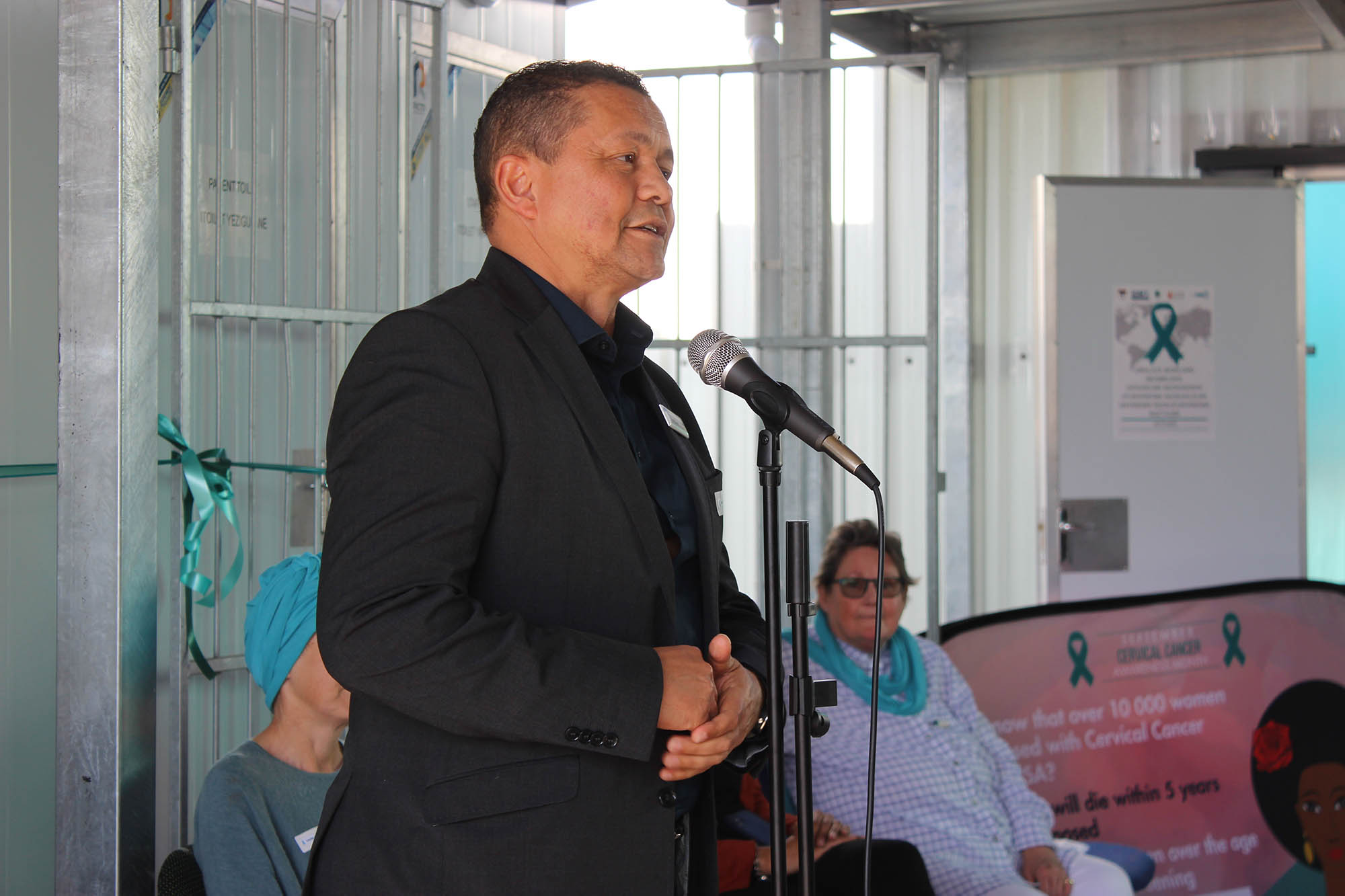 The Khayelitsha Cervical Cancer Screening Project was not only valuable as a site for research and implementation, but also as a space for the empowerment of women, said Dr Keith Cloete, head of the Western Cape Health Department, at the launch of the newly renovated facility on Monday, 8 August. (Photo: Tamsin Metelerkamp)
The Khayelitsha Cervical Cancer Screening Project was not only valuable as a site for research and implementation, but also as a space for the empowerment of women, said Dr Keith Cloete, head of the Western Cape Health Department, at the launch of the newly renovated facility on Monday, 8 August. (Photo: Tamsin Metelerkamp)
The KCCSP has contributed to bringing reproductive justice to the Khayelitsha community, said Dr Nomafrench Mbombo, Western Cape Health MEC.
“You are not only looking in terms of the [cervical] cancer screening… but you are bringing it to a community that is affected by socioeconomic ills — you are addressing the issue of access,” she said.
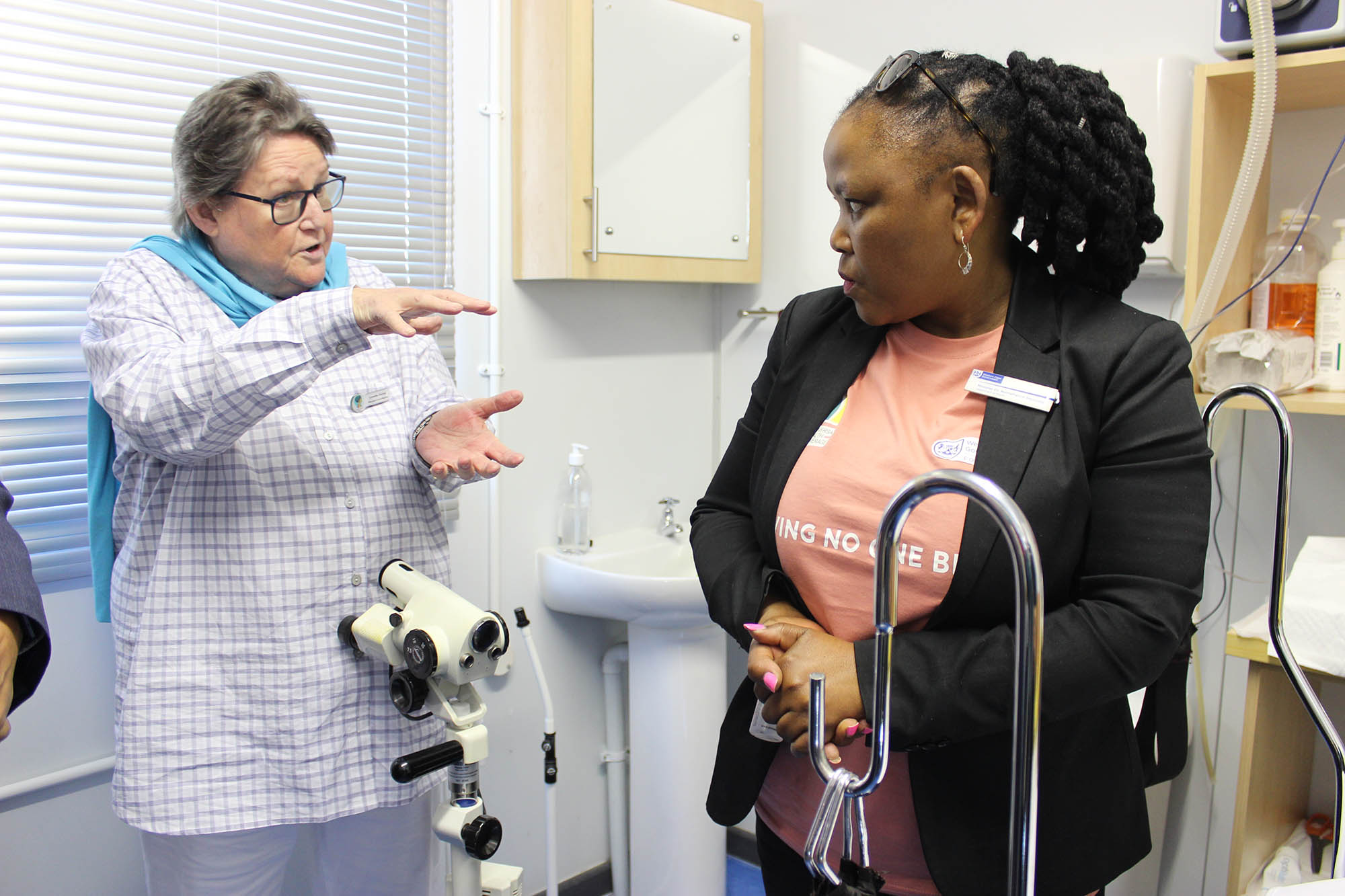 Prof Lynette Denny, director of the Khayelitsha Cervical Cancer Screening Project, shows Western Cape Health MEC Dr Nomafrench Mbombo around the project’s colposcopy room on Monday, 8 August. (Photo: Tamsin Metelerkamp)
Prof Lynette Denny, director of the Khayelitsha Cervical Cancer Screening Project, shows Western Cape Health MEC Dr Nomafrench Mbombo around the project’s colposcopy room on Monday, 8 August. (Photo: Tamsin Metelerkamp)
The project has undergone several transformations in its time, having started out in a mobile caravan adapted for the examination and treatment of women in 1995. It has been in Site B for about 20 years, and consists of six shipping containers and a prefabricated clinic room, said Denny.
Recent renovations saw a prefabricated building added to the site, with a staff room and colposcopy room. It also has two bathrooms — one for personnel and another for patients.
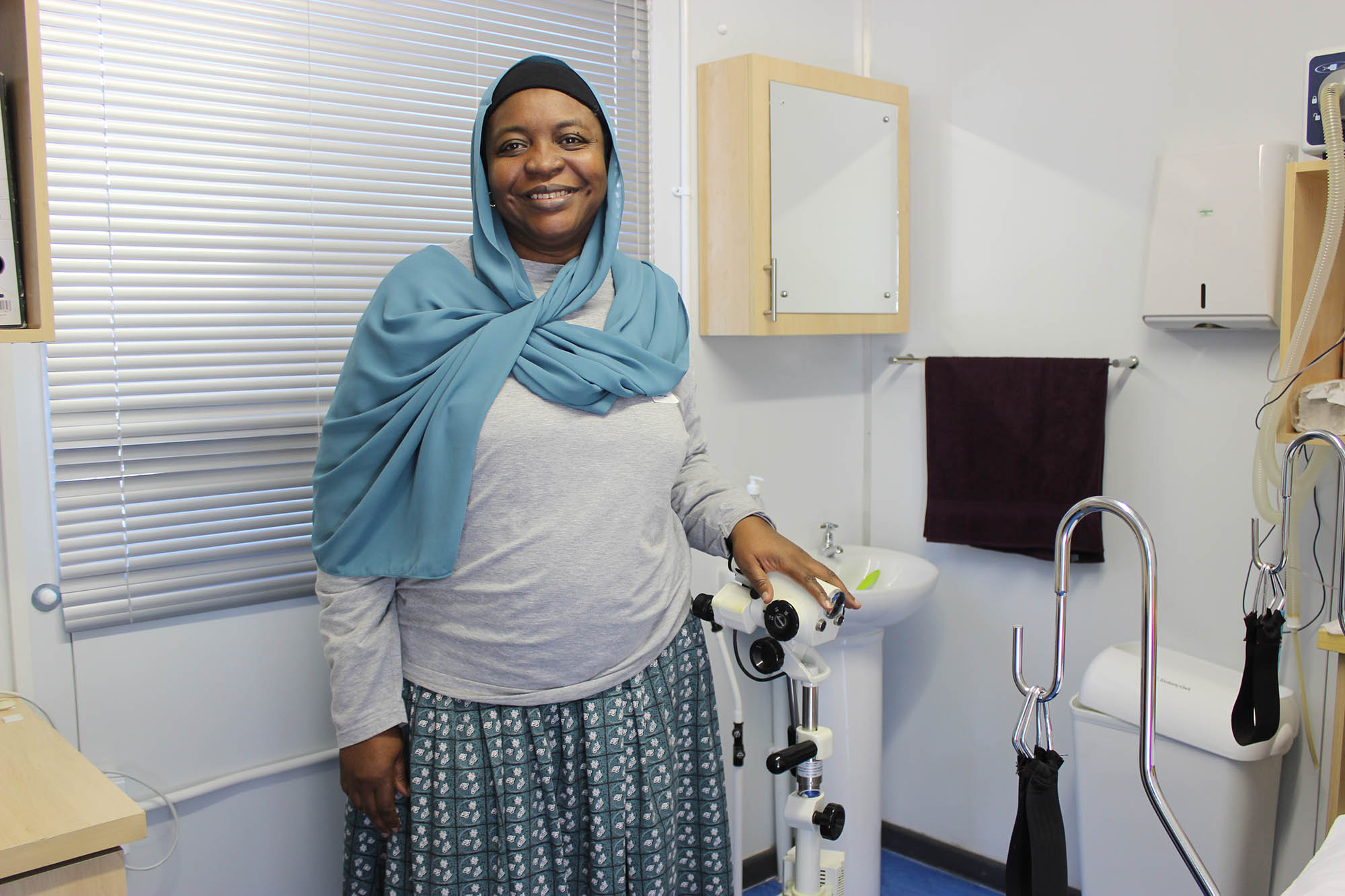 Dr Rakiya Saidu started as the lead clinician at the Khayelitsha Cervical Cancer Screening Project in 2015. She hopes to see the outcomes of the research done at the centre implemented at a grassroots level for the benefit of women. (Photo: Tamsin Metelerkamp)
Dr Rakiya Saidu started as the lead clinician at the Khayelitsha Cervical Cancer Screening Project in 2015. She hopes to see the outcomes of the research done at the centre implemented at a grassroots level for the benefit of women. (Photo: Tamsin Metelerkamp)
The bathroom for patients is an important addition, as it means women no longer have to walk to the facilities in the nearby clinic to produce urine samples, according to Dr Rakiya Saidu, lead clinician at the KCCSP.
Other renovations included paving and a fence for improved security, said Denny.
Cervical cancer
In South Africa, about 10,000 women are diagnosed with cervical cancer each year — at least 5,000 of whom die from the disease, according to Denny. Most cases are found in black South African women.
“The highest number of cases of cervical cancer are diagnosed in the Global South, specifically sub-Saharan Africa,” she said.
Cervical cancer can be picked up before it becomes a true, invasive lesion, through the detection of precancerous lesions. In the Global North, it was all but eradicated through the use of pap smears, which detect the precancerous phase.
“In the Global South and in poor countries, we were unable to either initiate or sustain pap smear-based programmes, because of the complexity of its requirements,” explained Denny, ascribing the difficulty to the many steps involved in processing samples.
“As a result, women have, in these countries, continued to die from this disease because they have not been screened.”
Denny recalled working at Groote Schuur Hospital where she would see up to 10 women a week, mostly black women, with advanced cancer of the cervix. They had to endure radical radiation and tremendous suffering.
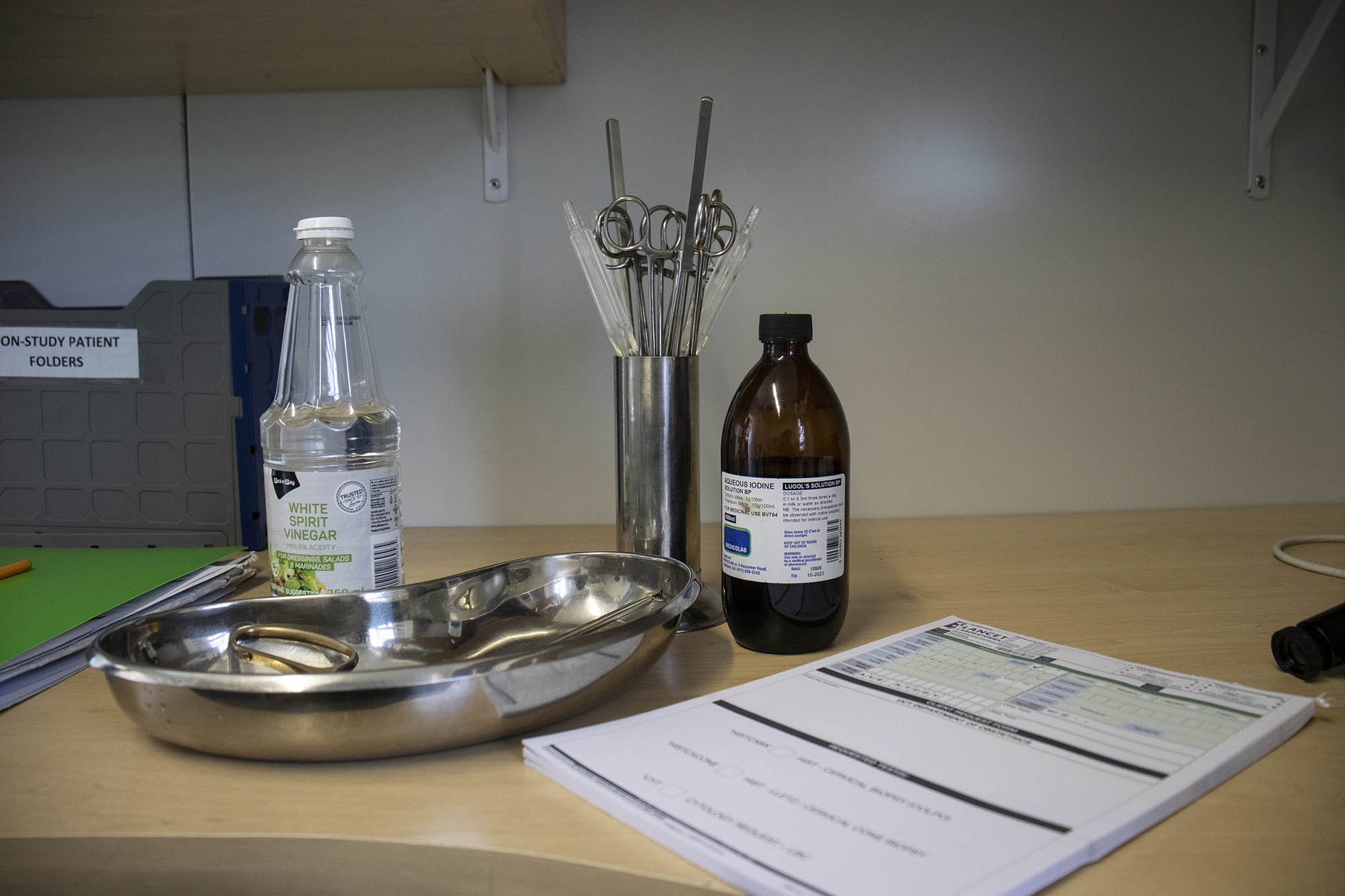 In South Africa, about 10,000 women a year are diagnosed with cervical cancer, of whom more than 5,000 will die from the disease. Most of these cases are found in black South African women. (Photo: Leila Dougan)
In South Africa, about 10,000 women a year are diagnosed with cervical cancer, of whom more than 5,000 will die from the disease. Most of these cases are found in black South African women. (Photo: Leila Dougan)
“Many of them had tried to access healthcare up to eight times before somebody examined them properly, made a diagnosis and sent them for care,” she said.
“The injustice around it, and the suffering, really infuriated me, particularly because it was so clear that we could… prevent it.”
In 1995, the KCCSP — in collaboration with Columbia University, New York — set out to find different methods of detecting precancerous lesions that would allow medical personnel to test, diagnose and treat a patient in one visit.
“It was our dream that we would be able to really make it feasible and affordable in poor countries,” said Denny.
Screening services
Over the years of research and testing, the KCCSP has found that modern human papillomavirus (HPV) testing is more accurate in detecting precancerous lesions than pap smears. The project was among the first to screen women for HPV and treat them in the same visit.
“We’ve shown… that if you screen women with HPV and treat them at the same visit, it is safe, it’s acceptable to women and it’s effective at preventing the development of pre-cancer,” said Denny. “So, that’s what we’re busy with at the moment — refining that approach.”
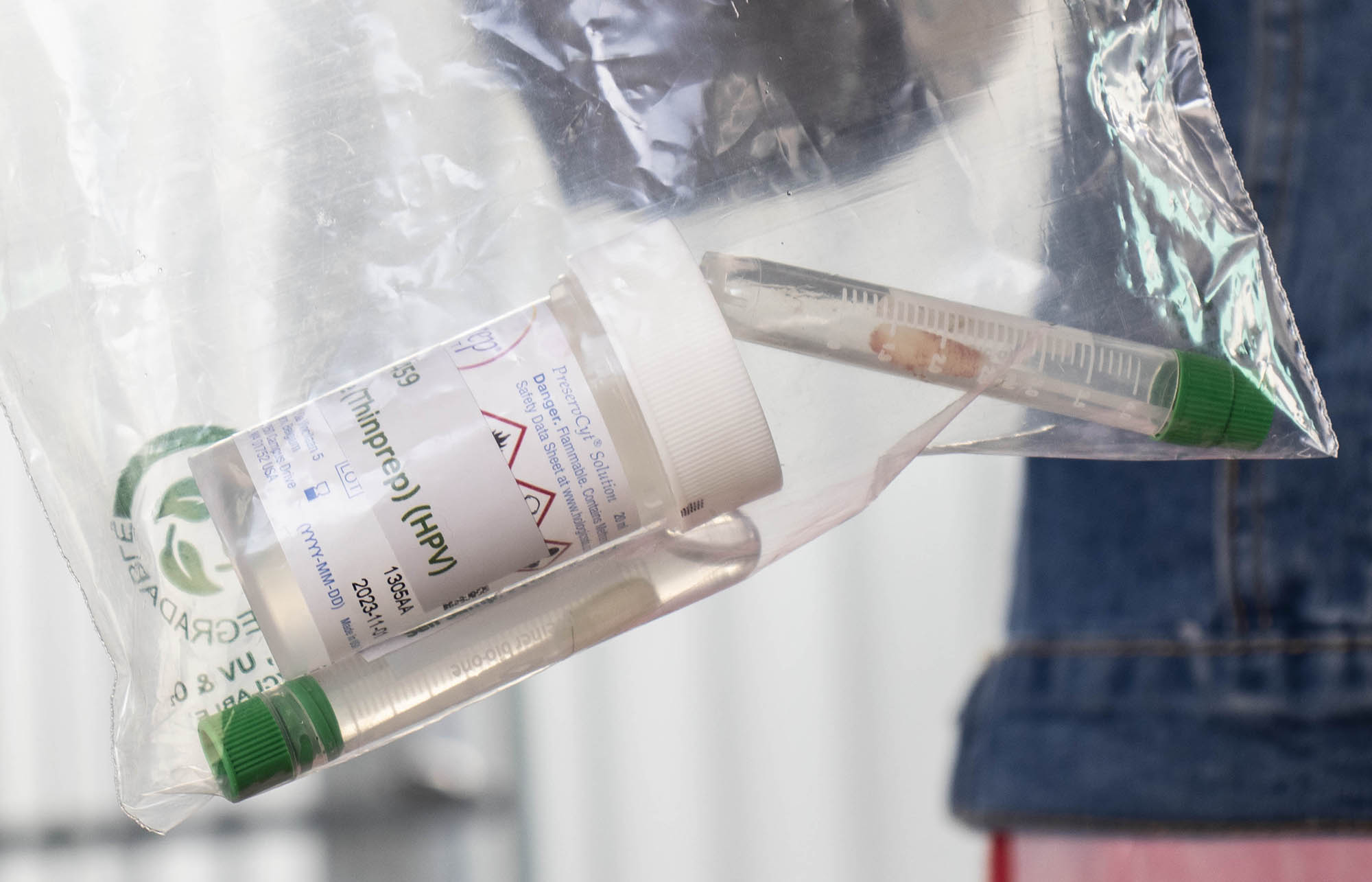 After a patient is examined in the colposcopy room of the Khayelitsha Cervical Cancer Screening Project, samples are taken for Human papillomavirus (HPV) testing. (Photo: Leila Dougan)
After a patient is examined in the colposcopy room of the Khayelitsha Cervical Cancer Screening Project, samples are taken for Human papillomavirus (HPV) testing. (Photo: Leila Dougan)
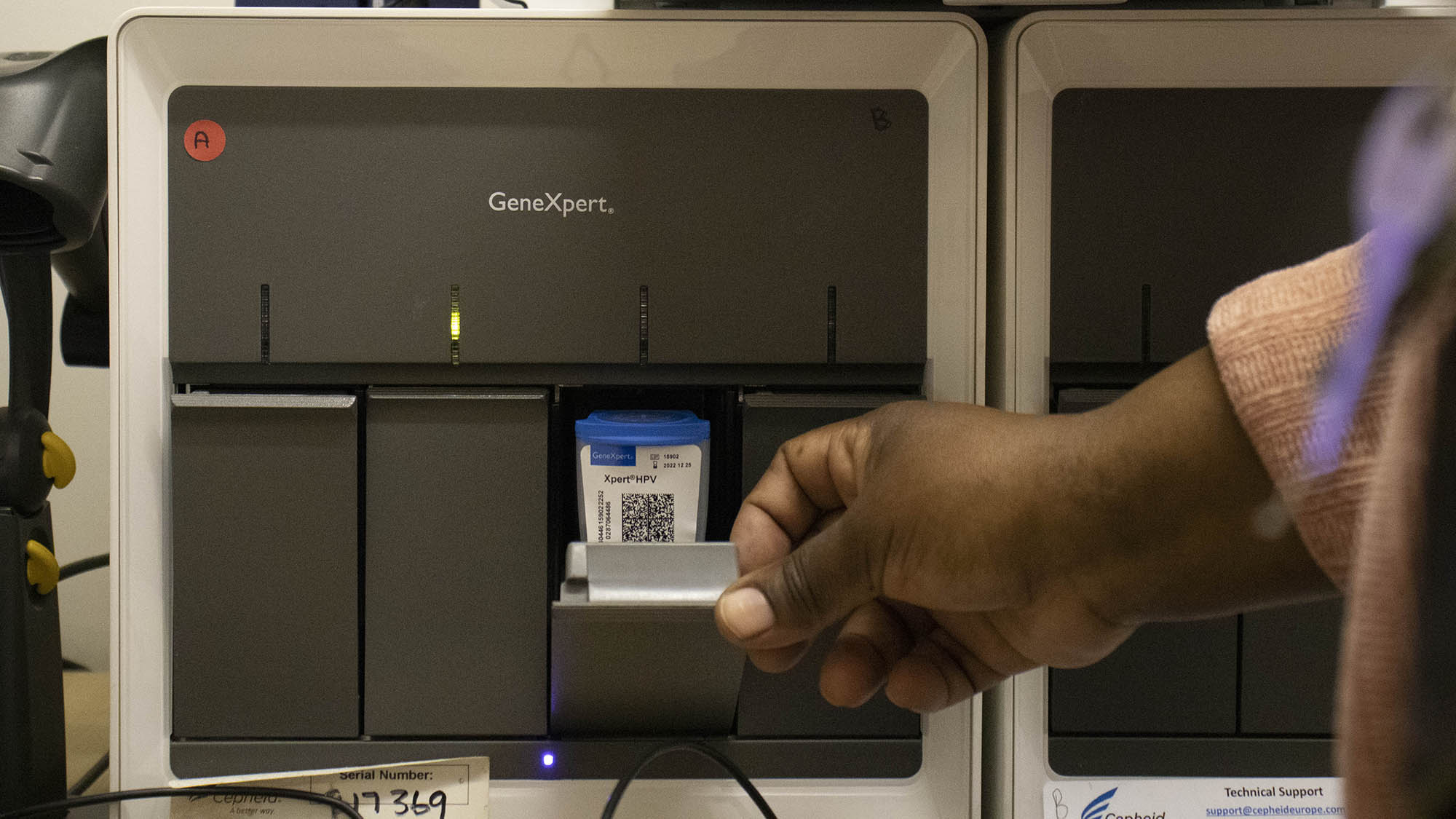 Human papillomavirus (HPV) test cartridges are inserted into the Cepheid GeneXpert machine, which runs the test for HPV detection in the cervix. Results are given within an hour. (Photo: Leila Dougan)
Human papillomavirus (HPV) test cartridges are inserted into the Cepheid GeneXpert machine, which runs the test for HPV detection in the cervix. Results are given within an hour. (Photo: Leila Dougan)
Patients are examined in the colposcopy room, where samples are taken for HPV testing. Project personnel use the Cepheid Xpert HPV test, which detects 14 high-risk cancer-associated types of HPV and gives the results in just under an hour.
Where precancerous lesions are detected, they can be destroyed using a LLETZ (Large Loop Excision of the Transformation Zone) machine, which involves excising the abnormal area, or by using a thermo coagulator, which works through heat.
“We’ve just done a study where we showed that 94% of women [who approached KCCSP] chose to wait for their results and receive the results on the same day, and the vast majority of those women — over 87% — were treated on the same day,” said Denny.
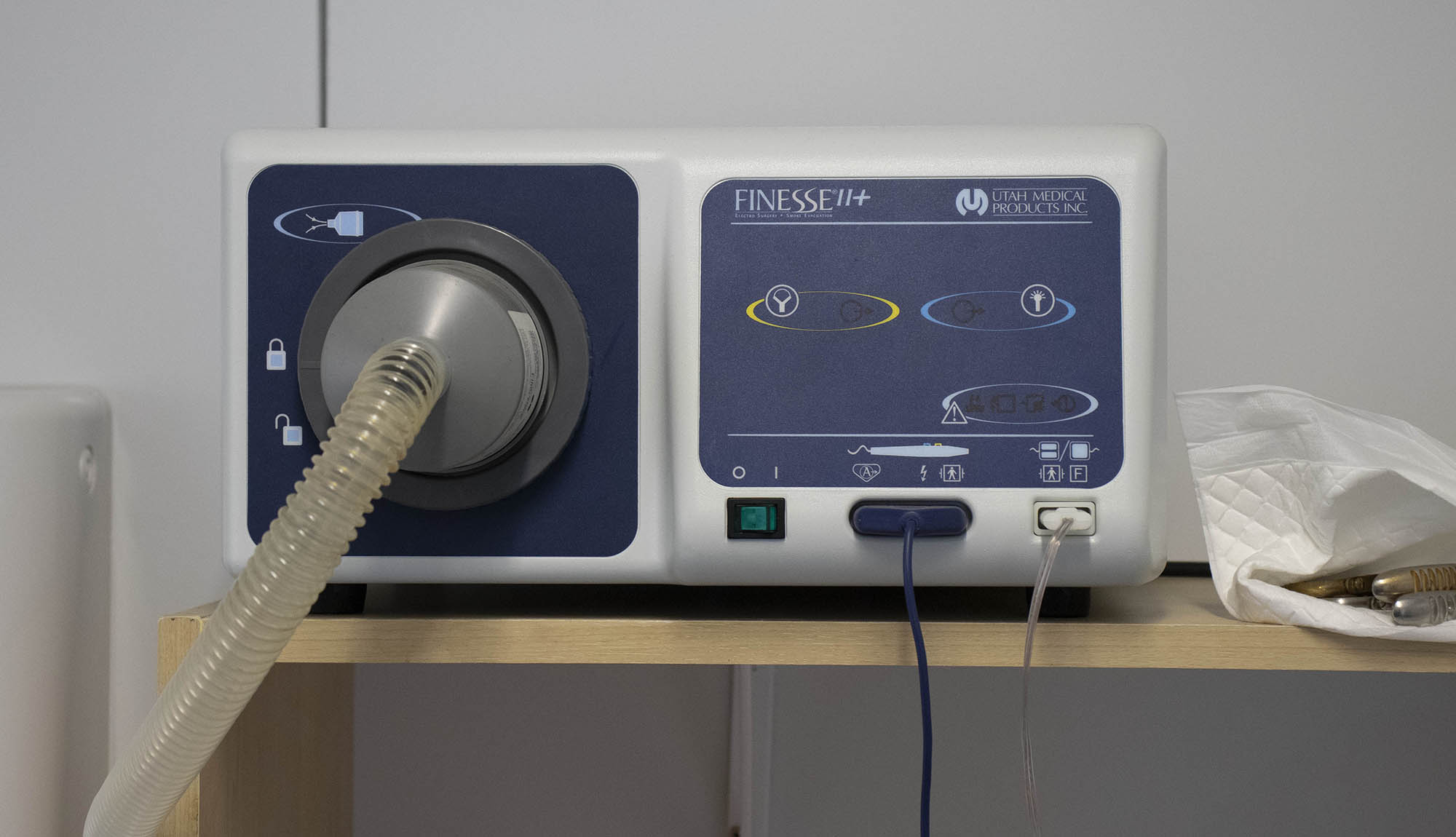 The machine for Large Loop Excision of the Transformation Zone of the cervix (LLETZ machine) is an electro-surgical unit that supplies controlled current to the loop used to remove lesions on the cervix. (Photo: Leila Dougan)
The machine for Large Loop Excision of the Transformation Zone of the cervix (LLETZ machine) is an electro-surgical unit that supplies controlled current to the loop used to remove lesions on the cervix. (Photo: Leila Dougan)
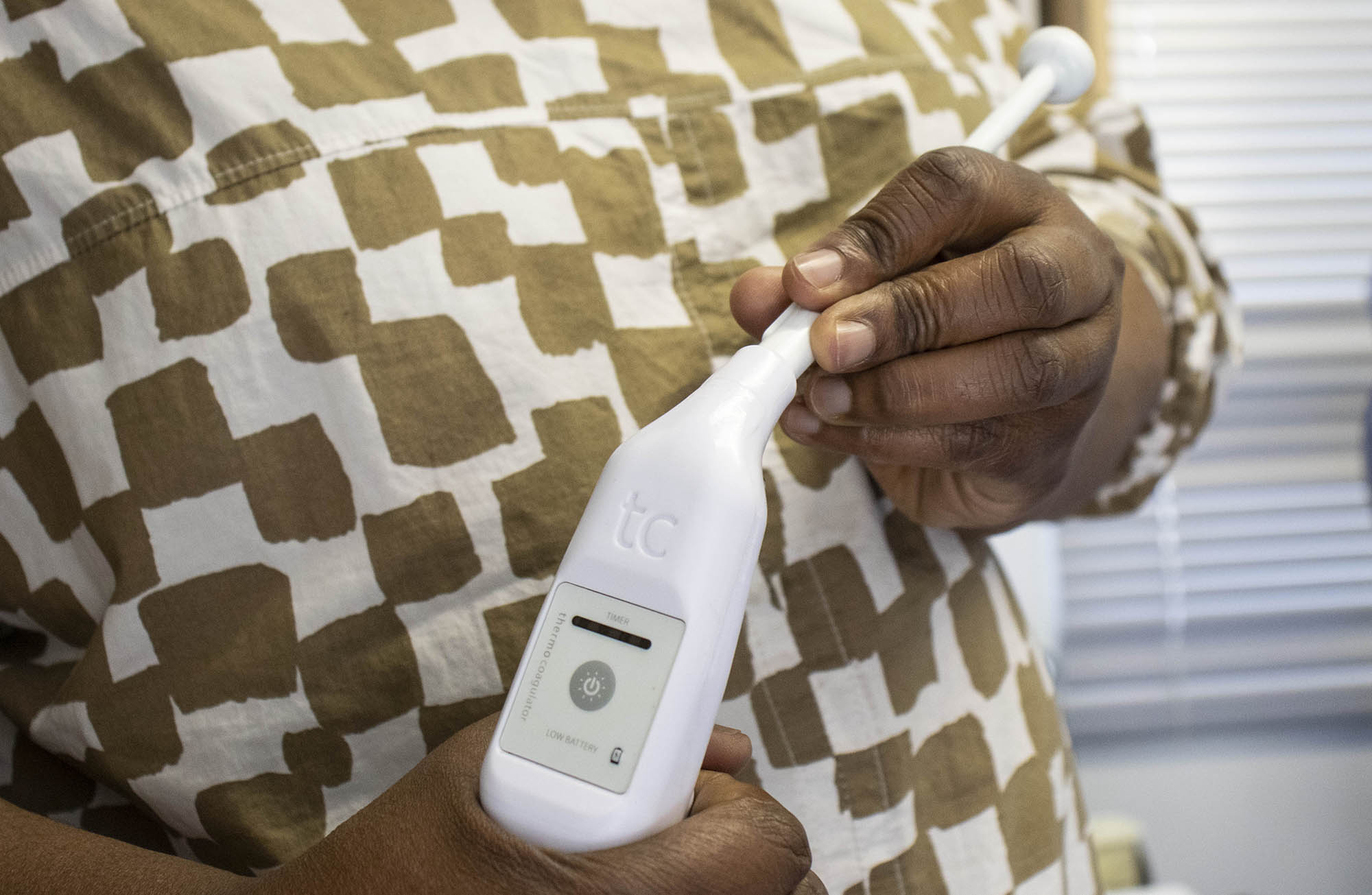 The thermocoagulator is used for treatment of the cervix through ablation. It uses heat to destroy precancerous lesions on the cervix. (Photo: Leila Dougan)
The thermocoagulator is used for treatment of the cervix through ablation. It uses heat to destroy precancerous lesions on the cervix. (Photo: Leila Dougan)
Staff at the clinic face some challenges, said Saidu, such as security in the Khayelitsha area. There have been occasional attacks and attempted hijackings involving personnel. However, the relationship between the KCCSP and the community is good.
“The project has been here for a very long time… so it’s known to the community,” she said. “It’s pleasing to the heart that we have [a] relationship with the community.”
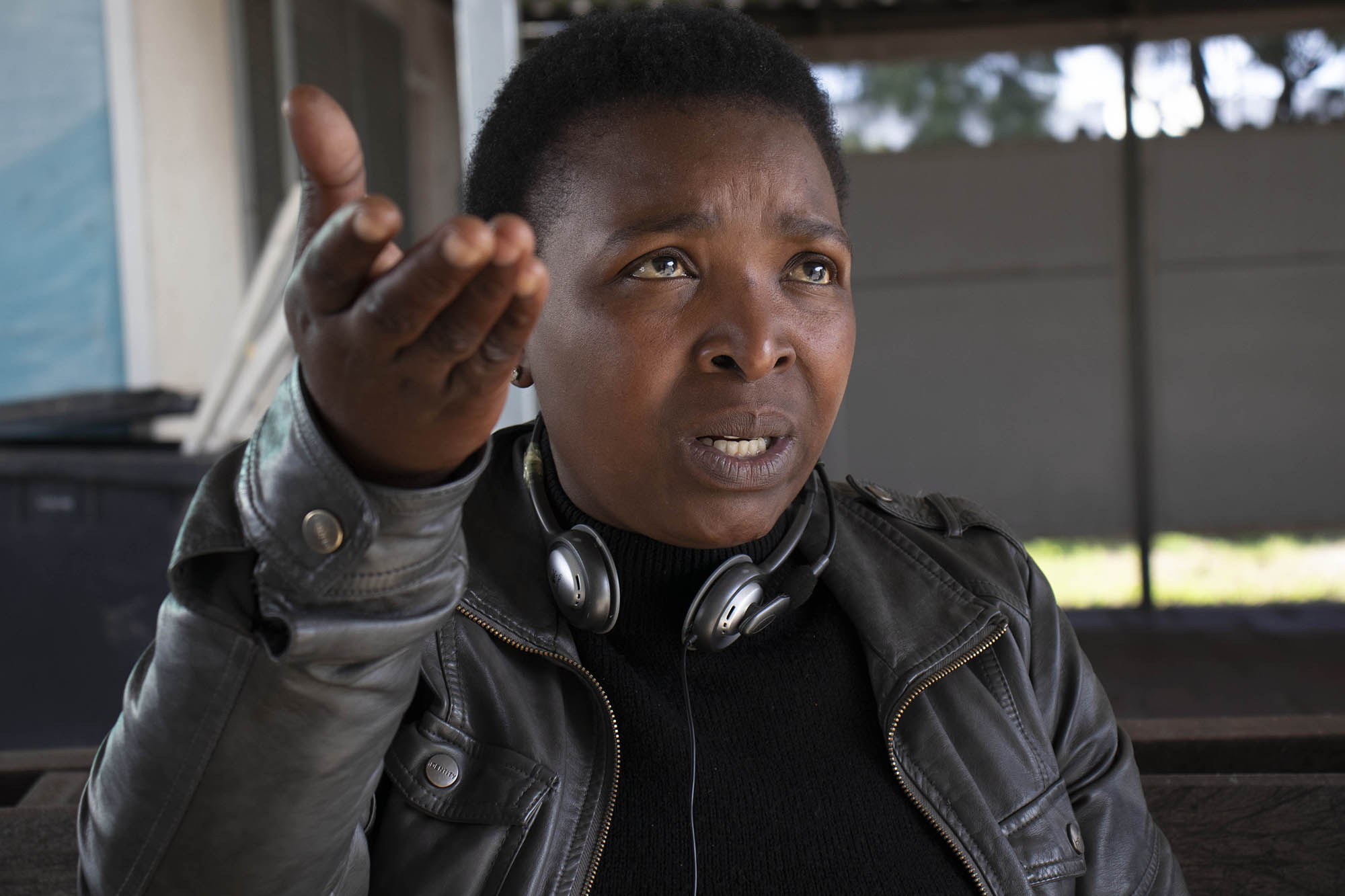 Nonzuzo Mjelo, a Khayelitsha resident and patient of the Khayelitsha Cervical Cancer Screening Project, said that the centre makes treatment more accessible to local women. She would not have been able to afford transport costs to a screening facility further away. (Photo: Leila Dougan)
Nonzuzo Mjelo, a Khayelitsha resident and patient of the Khayelitsha Cervical Cancer Screening Project, said that the centre makes treatment more accessible to local women. She would not have been able to afford transport costs to a screening facility further away. (Photo: Leila Dougan)
Nonzuzo Mjelo, a Khayelitsha resident and patient of the KCCSP, told Maverick Citizen that the project has played an important role in the lives of local women, as it means that they do not have to travel long distances for screening services. This saves on money for transport.
“[Women] have the opportunity to come in, to [learn] some of the things that some of the people are not talking about in other spaces,” she said.
The main aim of the project is to help women, emphasised Saidu, adding that she hopes policymakers will see their research and implement it at a grassroots level.
“We want to appeal to the policymakers to embrace what we are doing and translate it into care for women.” DM/MC




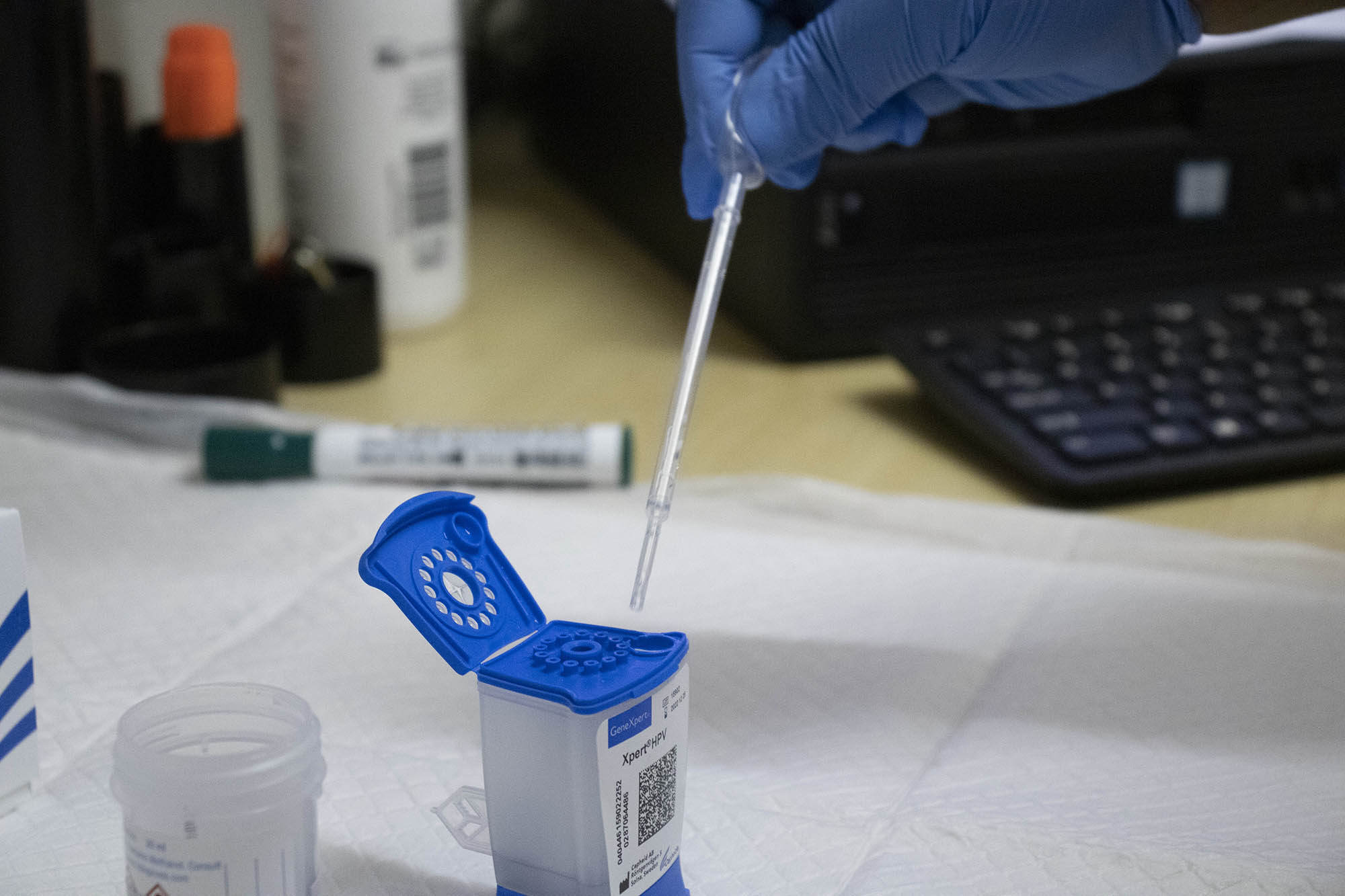 Nonzuzo Mjelo, a Khayelitsha resident and patient of the Khayelitsha Cervical Cancer Screening Project, said that the centre makes treatment more accessible to local women. She would not have been able to afford transport costs to a screening facility further away. (Photo: Leila Dougan)
Nonzuzo Mjelo, a Khayelitsha resident and patient of the Khayelitsha Cervical Cancer Screening Project, said that the centre makes treatment more accessible to local women. She would not have been able to afford transport costs to a screening facility further away. (Photo: Leila Dougan) 